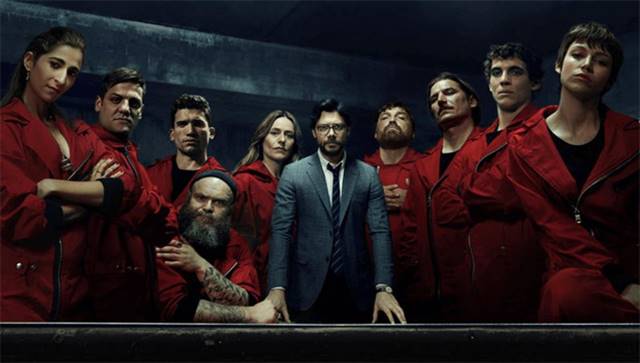It’s not the destination. It’s the journey. While that’s certainly partly true when it comes to books, movies and TV shows, most of the time that line has been pushed by incompetent and irritable creatives to a furious fanbase when a pop culture phenomenon ends with a fizz instead of fireworks. The past couple of decades have seen big name after big name – from HBO’s The Sopranos and Game of Thrones (the gold standard for terrible final seasons and finales) to Showtime’s Dexter* and Netflix ’s House of Cards crash and burn when attempting to stick the landing. All these years later, poor Sopranos creator David Chase is still trying to explain what happened to Tony in those befuddling moments when the television turned to black as the series ended and many thought their TV screens had malfunctioned. Sidenote: stop asking Chase what happened to Tony. For the love of God, stop asking Chase what happened to Tony. While House of Cards’ final outing was knee-capped by the developments surrounding its star Kevin Spacey, who continues to make headlines in the Ghislaine Maxwell trial, the show had long since degenerated from camp into blatant self-parody. That’s setting aside the fact that the election of Donald Trump to the White House, and the events that unfolded during his tenure, revealed politics to be more Veep than West Wing.
The Wire die-hards may rant about the decline in writing quality and outlandish and scarcely-believable plot twists in its latter seasons, but even the worst excesses of the show leave it leagues better than standard fare cop drama.
The creatives behind Game of Thrones delivered their version of George RR Martin’s promised “bittersweet” closure to his A Song of Ice and Fire saga with a nonsensical and borderline nihilistic ending by a heel turn (a term and concept with which most professional wrestling fans have grown sadly familiar over the past three decades) by its most beloved character and heroine Daenerys Targaryen. Not only did the showrunners tarnish their own reputations – it didn’t help that they cancelled all public appearances afterward and basically went into hiding from their own outraged fanbase – but also diminished the legacy of one of HBO’s greatest shows. A nifty trick if I’ve ever seen one and perhaps never to be emulated. Perhaps the most interesting show on this list is Showtime’s Dexter. Before GOT’s flaccid and flailing final seasons, Dexter was widely acknowledged as the undisputed king of bad TV endings. The mere existence of the show’s revival points to those in the know acknowledging what a terrible send-off the character and the series gave its fans and trying to make good. Which brings us to Money Heist
. Which is, at this moment, the biggest TV show in the world and a cultural behemoth. Back in September, when
Money Heist killed off Tokyo
, one of the show’s central characters, in part 1 of its fifth season, the question many of us asked is: What now? Can Money Heist do what so few huge pop culture juggernauts have done before it and end on a satisfying note? Now, we have the answer. Yes. Picking up just moments after the death of ostensibly its lead character Tokyo, the second half of the final season of Money Heist, delivers a stirring and sweet send-off to the remaining members of “The Resistance”. The character of Tokyo may be dead in the show, but it’s her voice – and spirit of her character – that continues to guide characters and serves as a catalyst by sending the Professor into a physical and emotional tailspin from which he tries to spend the rest of the season trying to recover.
Deven Kanal kicked off his media career at Reader's Digest after graduating from The Times School of Journalism. With more than 13 years of work experience in the media, he has written on a variety of subjects — from human interest stories to sports, politics and pop culture
)